What Are the Traditional Wedding Vows?

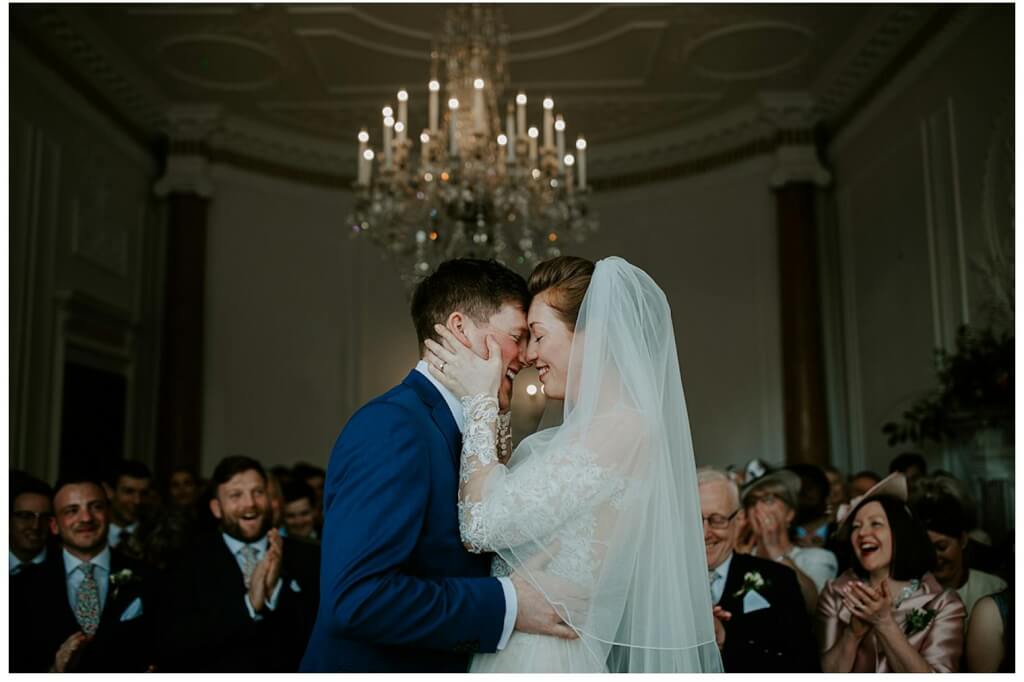
Wedding vows are one of the most important but often overlooked parts of the wedding day. Because they only last 3-5 minutes, people tend to forget about them! This can lead to stress, anxiety, or even a last-minute scramble to come up with meaningful words. But, not to worry — we’re here to turn that potential stress into a breeze of beauty and tradition.
Infused with love and a symbol of commitment, traditional wedding vows are the perfect way to say ‘I do.’ These beautiful words have stood the test of time, helping generations before us express a love that lasts a lifetime. But, which classic wedding vows should you choose? It can be confusing with so many denominations to choose from.
To help you out, we’ve created a list of classic wedding vows for 22 different denominations! So whether you’re connected to nature, are of Christian or Islamic background, or even if you’re interested in mix-and-matching — we have your back!
What are the traditional wedding vows?
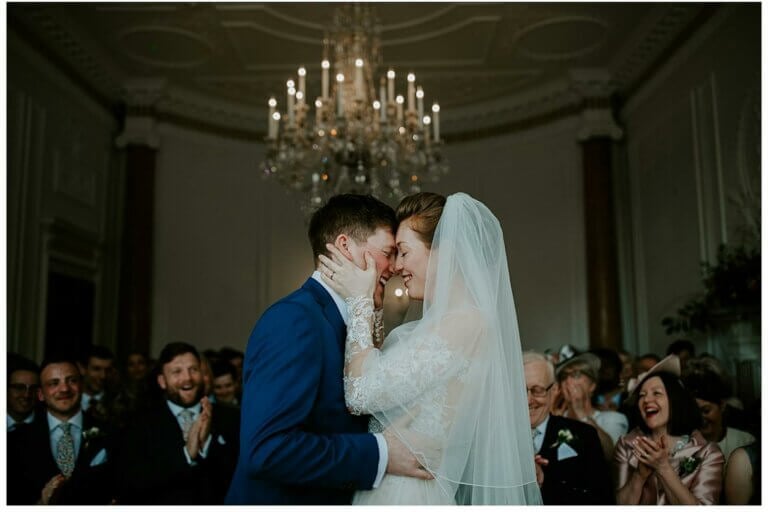
Traditional wedding vows are the most common types of wedding vows read during a wedding ceremony. In Western countries, classic wedding vows include phrases like “I, [Name], take you, [Partner’s Name], to be my lawfully wedded [wife/husband/life partner]”.
Traditional wedding vows are deeply rooted in religious and cultural traditions. They are read as a sign of commitment to one another and, in some religions, serve as a symbolic contract before the eyes of God.
Do I have to be religious to use traditional wedding vows?
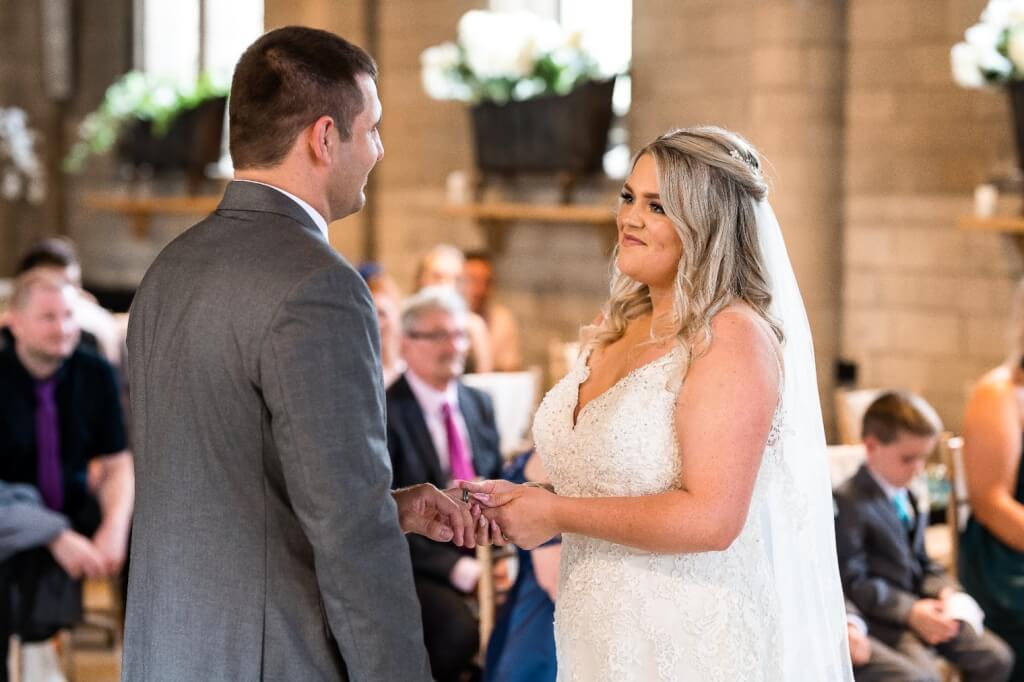
No, you don’t have to be religious to use traditional wedding vows.
However, you should ideally have a connection to the religion or practice if you want to use the traditional wedding vows of that denomination. This shows respect for the culture and the heritage from which the vows originate.
For example, if your grandmother was Jewish but you haven’t personally practised Judaism, incorporating traditional Jewish wedding vows could be a meaningful way to honour her and the cultural background she cherished. However, having no connection to Judaism and wanting to use their vows may be considered disrespectful.
If you’re adamant you want to use the vows of a specific denomination but have no connection to the faith or culture, consider writing your own vows inspired by the words of that language! This should help you find a happy medium between what you want and being respectful.
22 traditional wedding verses
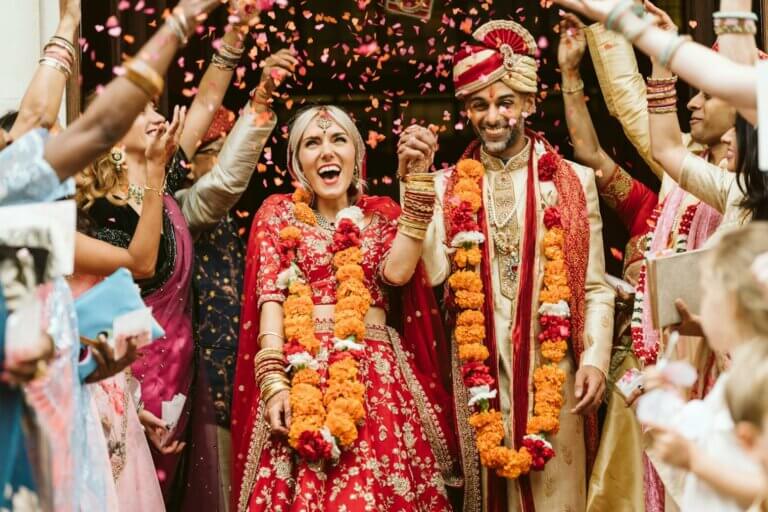
Check out this list of traditional wedding vows for 22 different denominations.
Christian wedding vows
Christian wedding vows are generally considered to be the standard wedding vows in Western countries. They’re slightly different from Catholic vows in that they aren’t preceded by any questions.
Traditional Christian wedding vows are:
I, [Name], take you, [Name]
To be my wife/husband/life partner,
To have and to hold
From this day forward;
For better, for worse,
For richer, for poorer,
In sickness and in health,
To love and to cherish,
Till death us do part,
According to God’s holy law.
In the presence of God, I make this vow.
Top Tip: If you’re looking to include a Bible verse in your wedding speech or mix up your wedding vows, check out our post on the 25 best Bible verses for a wedding ceremony. This will help you personalise your wedding vows while still staying true to your religion.
Catholic wedding vows
Catholic wedding vows are usually preceded by three questions from the priest. These questions are called The Order of Celebrating Matrimony.
The priest will say, [Name] and [Name], have you come here to enter into Marriage without coercion, freely and wholeheartedly?
To which the couple must reply that they have.
Are you prepared, as you follow the path of Marriage, to love and honour each other for as long as you both shall live?’
To which the couple must reply that they will.
Are you prepared to accept children lovingly from God and to bring them up according to the law of Christ and his Church?
To which the couple must reply that they will. They can then move on to the traditional Catholic wedding vows
The Priest will then say:
Since it is your intention to enter into the covenant of Holy Matrimony, join your right hands, and declare your consent before God and his Church.
Groom: I, [Name], take you, [Name], to be my wife/life partner. I promise to be true to you in good times and in bad, in sickness and in health. I will love you and honour you all the days of my life.
Bride: I, [Name], take you, [Name], to be my husband/life partner. I promise to be faithful to you in good times and in bad, in sickness and in health, to love you and to honour you all the days of my life.
Anglican wedding vows
Similar to Catholic wedding vows, traditional Anglican wedding vows start off with a question from the celebrant. This is called the interrogation, and reads as follows:
Into this union [Name] and [Name] now come to be joined. If any of you can show just cause why they may not be lawfully wed, speak now, or else forever hold your peace.
There is usually a pause (and some giggles) as you wait for someone to speak.
If no one does, the Priest or celebrant moves on to say:
I charge you both, here in the presence of God and the witness of this company, that if either of you know any reason why you may not be married lawfully and in accordance with God’s Word, do now confess it.
The Priest or celebrant then says to the bride:
[Name], will you have this man to be your husband/life partner, to live together with them in the covenant of marriage? Will you love them, comfort them, honour and keep them, in sickness and in health; and, forsaking all others, be faithful unto them as long as you both shall live?
The bride then says:
I will.
The Priest or celebrant says to the groom:
[Name], will you have this person to be your wife/life partner; to live together with them in the covenant of marriage? Will you love them, comfort them, honour and keep them, in sickness and in health; and, forsaking all others, be faithful unto them as long as you both shall live?
The groom then answers:
I will.
The Priest or celebrant addresses the guests, saying:
Will all of you witnessing these promises do all in your power to uphold these two persons in their marriage?
The congregation responds:
We will.
Methodist wedding vows
Traditionally, Methodist weddings will have shorter vows than other branches of Christianity.
Many Methodists use the following vows:
I, [Name], take thee [Name], to be my wife/husband/life partner, to have and to hold,
from this day forward, for better – for worse, for richer – for poorer,
in sickness and in health, to love and to cherish, till death do us part,
and thereto I pledge thee my faith.
However, some prefer an even shorter vow reading. This is called the United Methodist Declaration of Consent:
I take you, [Name], to be my wife/husband/life partner from this day forward, to join with you and share all that is to come, and I promise to be faithful to you of God and this congregation to declare your intent.
Lutheran wedding vows
Similar to Methodist vows, traditional Lutheran wedding vows are on the shorter side compared to standard Christian or Catholic wedding vows. Classic wedding vows include:
In the presence of God our Father, the Lord Jesus Christ, the Holy Spirit, and this community, I, [Name], take you, [Name], to be my wife/husband/life partner; to have and to hold from this day forward, in joy and in sorrow, in plenty and in want, in sickness and in health, to love and to cherish, as long as we both shall live. This is my solemn vow.
You could also use:
I, [Name], take you, [Name], to be my wife/husband/life partner from this day forward, to join with you and share all that is to come, and I promise to be faithful to you until death parts us.
Baptist wedding vows
As with other Christian wedding vows, Baptist wedding vows usually include promises of love, commitment, and partnership. However, there is usually more freedom to craft your own marriage promises in Baptist wedding ceremonies. You should work closely with your Priest or celebrant to craft vows that uniquely represent you as a couple.
Traditional Baptist wedding vows are usually pretty short and read as follows:
Will you have [Name] to be your wife/husband/life partner? Will you love them, comfort and keep them, and forsaking all others remain true to them, as long as you both shall live?”
The couple then respond:
I will.
Alternatively, you could create your own wedding vows to read on your special day.
Presbyterian wedding vows
Traditional Presbyterian wedding vows follow a similar structure to other Christian wedding vows. However, as with Baptist weddings, couples in a Presbyterian wedding may have the option to include personal promises or vows.
If you’re looking for a jumping-off point, try following this classic structure. First, the celebrant will say:
[Name], wilt thou have this woman/man/person to be thy wife/husband/life partner, and wilt thou pledge thy faith to them, in all love and honour, in all duty and service, in all faith and tenderness, to live with them, and cherish them, according to the ordinance of God, in the holy bond of marriage?
Bride/groom/life partner: I will.
Quaker wedding vows
In keeping with Quaker traditions, Quaker wedding ceremonies are usually a silent affair. The partners and their guests will meet for a silent worship. This means the couple and guests gather in silence, waiting for divine guidance. The couple will rise to exchange their vows when they feel moved to do so.
When they do, they will usually say something like:
In the presence of God and these our friends, I, [Name], take thee, [Name], to be my wife/husband/life partner, promising with Divine assistance to be unto thee a loving and faithful spouse, until it shall please the Lord by death to separate us.
Episcopalian wedding vows
Traditional Episcopalian wedding vows may vary slightly depending on the specific texts used in the church. However, they generally follow this traditional structure:
I, [Name], take you, [Name], to be my wedded [wife/husband/life partner], to have and to hold from this day forward, for better for worse, for richer for poorer, in sickness and in health, to love and to cherish, till death us do part, according to God’s holy ordinance; and thereto I pledge you my faith.
Jehovah’s Witness wedding vows
Jehovah’s Witnesses usually have simple wedding ceremonies followed by a small gathering of friends afterwards. The main feature of these weddings is not the vows, but instead the wedding talk. This is a religious reading, which is usually around 30 minutes long and read by a Priest or faith leader.
If the bride and groom would like to exchange vows, they usually read the following:
Priest: [Name], do you take [Name] to be your wife/life partner, to love and cherish, according to God’s Holy Word?
Groom: Yes, I do.
Priest: [Name], do you take [Name] to be your husband/life partner, to love and submit to, according to God’s Holy Word?
Bride: Yes, I do.
Unitarian wedding vows
The Unitarians are a more liberal branch of Christianity. As a result, there are no set traditions or constraints for Unitarian weddings. Instead, Unitarian weddings are focused on the joining of two souls regardless of religious background, gender, or beliefs.
Unitarian wedding ceremonies are usually completely bespoke — the Priest or celebrant works with the couple to create a service that suits them. This means you are encouraged to write your own wedding vows for the ceremony.
If you’re really stuck, try following this format. First, the celebrant will say:
Do you, [Name], take [Name] to be your lawfully wedded spouse, to love and to cherish, to honour and respect, in times of joy and in times of challenge, forsaking all others and holding only unto them?
Bride/groom/life partner: I do.
Celebrant: And do you, [Name], take [Name] to be your lawfully wedded spouse, to love and to cherish, to honour and respect, in times of joy and in times of challenge, forsaking all others and holding only unto them?
Bride/groom/life partner: I do.
Interfaith wedding vows
Interfaith weddings are where two people from different religions or cultures come together to hold a wedding that represents them. Interfaith weddings highlight the beauty of finding common ground while honouring differences.
They are usually a blend of the couple’s favourite traditions and customs from their individual cultures or religions. They not only unite the couple, but also foster a broader sense of understanding and appreciation among their families and communities.
As a result, there are no traditional wedding vows for interfaith weddings. Instead, each couple can use the traditional wedding vows from their respective backgrounds to create a beautiful and unique ceremony that represents them as a couple.
Apache wedding vows
Apache weddings are usually called Apache blessings and are a beautiful and poetic way for those from the Native American community to celebrate their love.
It’s important to note that these words are often attributed to the Apache people, but their actual origin and cultural authenticity have been debated.
The traditional Apache wedding blessing is as follows:
Now you will feel no rain,
For each of you will be the shelter to the other.
Now you will feel no cold,
For each of you will be the warmth of the other.
Now there is no more loneliness,
For each of you will be the companion to the other.
Now you are two bodies,
But there is only one life before you.
Go now to your dwelling place
To enter into the days of your togetherness.
And may your days be good and long upon the Earth.
Buddhist wedding vows
Buddhist wedding ceremonies can vary widely based on cultural and regional traditions. As a result, there’s no standardised set of traditional Buddhist wedding vows. Instead, Buddhist wedding vows often revolve around the principles of Buddhism. For example, mutual respect, understanding, and commitment.
Consider using something like:
As we enter into this union, I vow to honour and respect you, to support and cherish you in times of joy and sorrow. I promise to cultivate patience, understanding, and compassion as we walk the path of life together. May our union be guided by the principles of the Buddha, and may we find joy and contentment in each other’s presence. Just as the lotus rises above the muddy waters, may our love bloom amidst the challenges of life. I take refuge in the Three Jewels and commit to nurturing our spiritual growth and understanding.
However, if you’re looking for something shorter, you may also consider:
I, [Name], take you [Name] to be my faithful wife/husband/life partner, and my one true love. I will cherish our friendship and love you today, tomorrow, and forever. I will trust you and honour you. I will laugh with you and cry with you. Through sickness and health.
Jewish wedding vows
Jewish wedding ceremonies have some of the oldest wedding vows in human history. As a result, Jewish celebrations are steeped in rich traditions that have been passed down through generations. They draw on inspiration from ancient texts like the Torah and emphasise the importance of building a home based on shared values and mutual support.
Jewish wedding vows are generally split into the Kiddushin, or the Sanctification, and then the Sheva B’rachot, or the Seven Blessings. There are also other celebrations during a Jewish wedding like the Nissiun, the ring exchange, a reading from the Song of Solomon, and the breaking of glass.
This Kiddushin is as follows:
Rabbi: [Name], do you take [Name] to be your wife/life partner, to honour, cherish, and protect them, and to live with them in a committed and loving partnership?
Groom/life partner: I do.
Rabbi: [Name], do you take [Name] to be your husband/life partner, to honour, cherish, and support them, and to live with them in a committed and loving partnership?
Bride/life partner: I do.
After the Kiddushin there is the Nissiun, which is where the Rabbi reads the marriage contract. After this there is a ring exchange, followed by the Seven Blessings:
Rabbi: Blessed are You, Adonai our God, Ruler of the universe, who has created joy and gladness, bride and groom, mirth, song, delight, and rejoicing. May there soon be heard in the cities of Judah and the streets of Jerusalem the sound of joy and the sound of gladness, the voice of the groom and the voice of the bride.
After this, there is a reading from the Song of Solomon and the breaking of glass.
Muslim wedding vows
Muslim or Islamic marriage vows reflect the Muslim wedding contract. This is called the Nikah and includes specific statements made by the couple to one another. The bride traditionally reads her vows first.
I, [Name], offer you myself in marriage and in accordance with the instructions of the Holy Qur’an and the Holy Prophet, peace and blessing be upon him. I pledge, in honesty and with sincerity, to be for you an obedient and faithful wife/life partner.
The other partner responds: I, [Name], in accordance with the instructions of the Holy Qur’an and the Holy Prophet, peace and blessing be upon him. I pledge, in honesty and sincerity, to be for you a faithful and helpful husband/life partner.
The Imam or prayer leader then completes the vows with:
May Allah bless this union and grant [Name] and [Name] a happy and prosperous life together.
Hindu wedding vows
Similar to Jewish weddings, Hindu wedding ceremonies are steeped in history and have a great cultural significance to the religion. Hindu marriage vows are an integral part of the wedding ceremony and symbolise the sacred bond that the couple is entering into.
There are four parts to a Hindu wedding ceremony, with the vows or pledge (called Sankalpa) being led by a Pandit or Pujari. The Sankalpa is as follows. First, the Pandit will say:
In the presence of the sacred fire, the deities, and our families, do you, [Name], take [Name] as your lawfully wedded wife/life partner? Will you cherish and protect her, and fulfil your responsibilities as a husband?
Groom/life partner: I do.
Pandit: And do you, [Name], take [Name] as your lawfully wedded husband/life partner? Will you be a devoted wife and fulfil your responsibilities in this sacred union?
Bride/life partner: I do.
Sikh wedding vows
Sikh weddings are also called Anand Karaj ceremonies and include a reading from the Guru Granth Sahib, the holy scripture of Sikhism. Traditional Sikh weddings don’t include a vow exchange.
However, if you’re looking to incorporate wedding vows into your Sikh wedding ceremony, it’s essential to approach it with respect for Sikh traditions and customs.
Pagan wedding vows
Pagan wedding vows are a great choice for anyone with a strong connection to nature, who practises neo-paganism, or who is looking for a more spiritual wedding ceremony.
Pagan wedding vows are often deeply personal and can vary widely based on individual beliefs, preferences, and the specific traditions followed. As a result, there are no traditional Pagan wedding vows. Instead, the couple take part in handfasting ceremony vows.
Handfasting is a tradition where the couple’s hands are bound together with coloured cord. The colour of the cord has different symbolic meanings. For example:
- Red. Red attracts strength, courage, and fertility.
- Orange. Orange offers encouragement, attraction, and kindness.
- Blue. Blue brings patience, understanding, and loyalty.
While the service leader ties the couple’s hand together, they may say something like:
As a symbol of your unity, you shall now bind your hands together. These cords represent the ties that bind your hearts and souls. Will you honour and uphold one another through all the twists and turns that life may bring?
Partners (together): We will.
Celtic wedding vows
The Celts are people of Scottish, Irish, Welsh, and Cornish heritage. If you want to honour your ancestry by incorporating Celtic elements into your wedding ceremony, use these vows to draw on the rich cultural and spiritual traditions of the Celts.
The Celts also use a handfasting ceremony to symbolise the binding of two lives together in love and commitment. However, they traditionally use different wedding vows. You could either use:
You are blood of my blood, bone of my bone. I give you my body, that we might be one. I give you my spirit, until our life is done.
Or:
You are the star of each night,
You are the brightness of every morning,
You are the story of each guest,
You are the report of every land.
No evil shall befall you, on hill nor bank,
In field or valley, on mountain or in glen.
Neither above, nor below, neither in sea,
Nor on shore, in skies above,
Nor in the depths.
You are the kernel of my heart,
You are the face of my sun,
You are the harp of my music,
You are the crown of my company.
Druidry wedding vows
Druid weddings are similar to Celtic or Pagan weddings in that they often draw inspiration from nature and ancient traditions. They also tend to be more personalised to the couple’s unique spiritual beliefs and values.
Druid weddings embrace the idea that each couple’s love is a unique and sacred expression, meaning couples are encouraged to write their own marriage vows.
Non-denominational wedding vows
A non-denominational wedding is a wedding that doesn’t fit into any other specific category. This means you can pick and choose the traditions you want to follow, creating a day that’s as unique and special as your love story.
So, whether you draw inspiration from various cultural traditions, blend modern and classic elements, or create entirely new rituals, the freedom to personalise your ceremony is one of the defining features of a non-denominational wedding.
The bottom line on traditional wedding vows
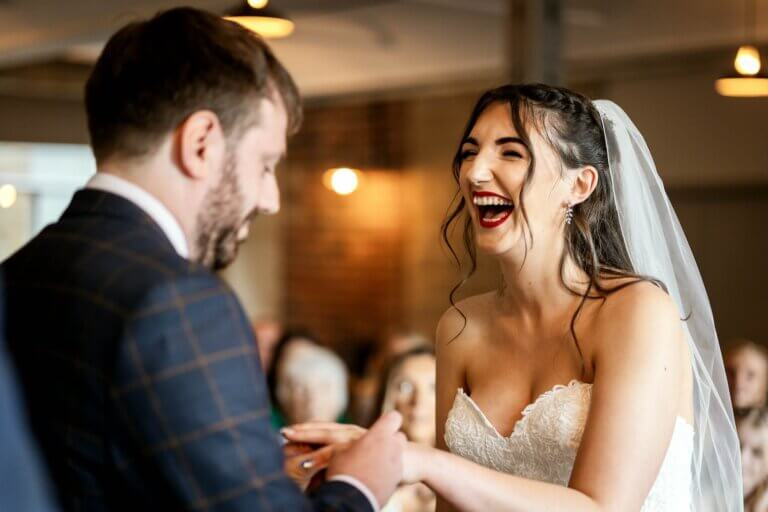
If you’re looking for stress-free wedding vows, traditional marriage vows are the way to go. They’re beautiful, timeless, and have been used for hundreds of years to help people express their love. Plus, using traditional wedding vows means you’re sure you cover all your bases in terms of marriage promises.
But, if you are looking for something a little more bespoke, don’t be afraid to mix it up. Custom marriage vows are becoming more and more common, and there’s nothing wrong with deviating from tradition so long as it feels true to your relationship.
If you’re looking to infuse some personalisation into your traditional vows, get inspired by our 15 romantic and inspiring love poems to get you started. Alternatively, if you want to write your own vows from scratch, try our ultimate guide on how to write wedding vows.
You Might Also Like…
- How to Write Wedding Vows: Structure, Examples and Top Tips
- Introduction: Writing Personalised Wedding Vows
- How Long Should Wedding Vows Be?
- 15 Romantic and Inspiring Love Poems for Your Wedding Ceremony


